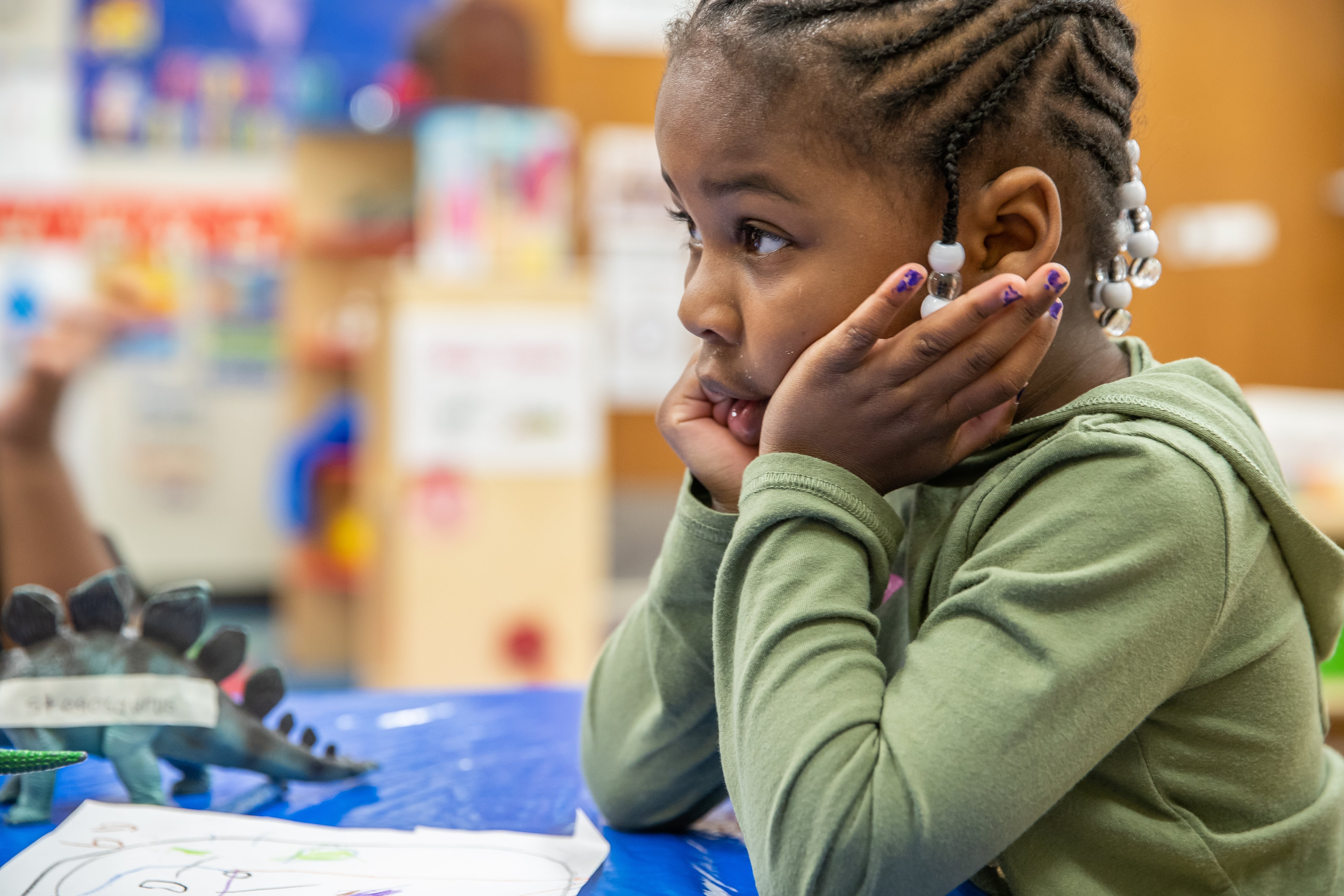In a rural sliver of northeast Indiana, Jessica Downey co-owns the only child care licensed in her small county to offer the state’s pre-kindergarten vouchers for low-income families.
But last year, only one child signed up for On My Way Pre-K. Other children filled the rest of the spaces in Downey’s pre-K class.
“I honestly think if everybody knew about On My Way Pre-K, and there were providers offering it, there would be more people interested in it — people who want to get their kids in preschool, but they can’t afford it,” Downey said.
After several years of building up its pre-K program, Indiana is now poised to evaluate the success of On My Way Pre-K. The upcoming year holds the potential for expanding what has so far been a small-scale opportunity, but the coronavirus could foil future progress.
Decision-makers won’t have complete academic measurements since school building closures this spring led to canceled assessments, and looming budget cuts threaten to dash hopes of robust funding increases for pre-K. Fears of the virus could also lead to fewer families signing up this year, a setback to the state’s efforts to increase enrollment and spread the word about On My Way Pre-K.
About 750 children have enrolled for the 2020-21 academic year so far. With about 3,500 need-based scholarships available for 4-year-olds to attend a state-approved pre-K provider, the state will continue signing up families through the fall. Many families still don’t know about the initiative, especially in rural areas, where pre-K vouchers have only recently become available and aren’t as widely used.
“We definitely understand this enrollment period is different from any other,” said Nicole Norvell, director of the state’s Office of Early Childhood and Out-of-School Learning. “We know families are a little hesitant about bringing their children into child care or pre-K at this point.”
Despite the uncertainty, some advocates say the pandemic has underscored exactly how important pre-K can be. When schools shut down this spring to curb the virus spread, many families felt deeply the sudden loss of a robust educational experience, socialization with other children, and a reliable, safe place for children to spend their days while parents work.
Maureen Weber, president and CEO of Early Learning Indiana, an early childhood advocacy group and child care provider, said she hopes lawmakers “remember the urgency” they feel around schools and day cares reopening when deciding pre-K funding.
Whether that will resonate with lawmakers remains to be seen.
Education leader Rep. Bob Behning, R-Indianapolis, said it’s too early to say what pre-K discussions could look like when the legislature convenes in January. Facing huge drops in tax revenues, the state will likely have to craft a slimmer budget. If the state prioritizes shielding K-12 education from deep cuts, other areas of the budget could shrink, Behning said.
He also noted, however, that pre-K appears to be gaining support in the legislature, including among some conservative factions who were once skeptical of the value of early childhood education.
The state has been tracking the effects of pre-K through a longitudinal study, which has so far showed stronger school readiness and academic skills in On My Way Pre-K students compared with their peers. But the study lacks a key piece of data: IREAD scores from the first class of On My Way Pre-K students, after the third-grade reading exam was canceled this spring.
It’s unclear how researchers might address the gap. Some schools may opt this fall to have fourth-graders take the IREAD exam that they missed.
In the meantime, to encourage sign-ups, the state has changed the On My Way Pre-K application process so interested families can complete it online. Officials are also working with providers to communicate with families about the safety precautions they’re taking to reduce the spread of the virus.
Navigating the process, especially during the pandemic, can be complicated, said day care owner Sherry Eggleston, whose Connersville preschool is newer to On My Way Pre-K. But she emphasized that the benefits can be huge, both for children who get an all-day, quality learning environment and providers who receive state payments.
“I think it needs to be for everybody,” Eggleston said.
Dylan Peers McCoy contributed reporting.





